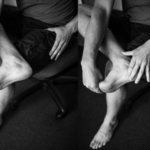Study finds programme to prevent cerebral palsy in premature babies is effective
A programme to increase the use of magnesium sulfate, a £1 injection that helps prevent cerebral palsy in premature babies, is effective according to a National Institute for Health and Care Research (NIHR) funded evaluation. The findings, led by researchers at the University of Bristol, are published in the Archives of Disease in Childhood.
University of Bristol 10 January 2023
Premature birth is the main cause of brain injury and cerebral palsy in babies. Evidence shows that babies can be protected from brain injury by giving magnesium sulfate to women who are at risk of premature birth. This reduces the risk of cerebral palsy by a third. However, in 2017 only 64% of eligible women were being given magnesium sulfate in England, Scotland and Wales.
The prevention of cerebral palsy in pre-term labour (PReCePT) programme aimed to support all maternity units in England to increase the use of magnesium sulfate in premature births. The PReCePT approach was developed in the West of England in 2014. It was led by the West of England Academic Health Science Network (AHSN) and University Hospitals Bristol and Weston NHS Foundation Trust.
It was then piloted in five NHS trusts in the West of England, and this pilot was evaluated by the NIHR Applied Research Collaboration West (NIHR ARC West). It has since been rolled out across England via the AHSN Network as a national programme.
The evaluation of the national programme, also led by NIHR ARC West, found that PReCePT was both effective and cost-effective. The researchers looked at data from the UK National Neonatal Research Database for the year before and year after PReCePT was implemented in maternity units in England.
While use of magnesium sulfate had been increasing before, the study showed that PReCePT was able to accelerate uptake. It increased by 6.3 percentage points on average across all maternity units in England during the first year, over and above the increase that would be expected over time as the practice spread organically. After also adjusting for variations in when maternity units started the programme, the increase in use of magnesium sulfate was 9.5 percentage points. By May 2020, on average 86.4% of eligible mothers were receiving magnesium sulfate.
The researchers also estimated that the programme’s first year could be associated with a lifetime saving to society of £3 million. This accounts for the costs of the programme, administering the treatment and of cerebral palsy to society over a lifetime, and the associated health gains of avoiding cases. This is across all the extra babies the programme helped get access to the treatment during the first year.
In the five West of England pilot sites the improved use of magnesium sulfate has been sustained over the years since PReCePT was implemented. As the programme costs were mostly in the first year of implementation, longer-term national analysis may show that PReCePT is even more cost-effective over a longer period.
John Macleod, NIHR ARC West Director, Professor in Clinical Epidemiology and Primary Care at the University of Bristol and principal investigator of the evaluation, said: “Our in-depth analysis has been able to demonstrate that the PReCePT programme is both effective and cost-effective. The programme has increased uptake of magnesium sulfate, which we know is a cost-effective medicine to prevent cerebral palsy, much more quickly than we could have otherwise expected.
“We are pleased to have played a part in helping get this cheap yet effective treatment to more babies.”
Natasha Swinscoe, Chief Executive for the West of England AHSN and National Lead for Patient Safety for the AHSN Network, added: “We’ve been delighted to support the development of PReCePT from its inception at University Hospitals Bristol and Weston to its spread to all five hospital trusts in the West of England, and then leading the national rollout through the AHSN Network.
“We are incredibly proud of what the perinatal community has achieved through this programme, and the difference it is making to the lives of so many premature babies and their families.”
This evaluation is part of a long-term collaboration between PReCePT’s chief investigator Professor Karen Luyt, NIHR ARC West and the West of England AHSN on the use of magnesium sulfate to prevent cerebral palsy in premature babies.
Karen Luyt, Professor in Neonatal Medicine at the University of Bristol, said: “The PReCePT national QI programme demonstrates that a collaborative and coordinated, AHSN delivered, perinatal implementation programme supporting every hospital in England, can accelerate the uptake of new evidence-based treatments into routine practice, enabling equitable health benefits to babies and ultimately reductions in lifetime societal costs.”
Professor Lucy Chappell, Chief Executive Officer of the National Institute for Health and Care Research, added: “This important study shows the impact of taking a promising intervention that had been shown to work in a research setting and scaling it up across the country. Giving magnesium sulfate to prevent cerebral palsy in premature babies is a simple, inexpensive intervention that can make such a difference to families and the health service. We look forward to seeing ongoing use of magnesium sulfate across our maternity units so that these benefits continue.”
Minister of State for Health Will Quince said: “This study proves this simple, cost effective injection can protect babies as well as potentially saving society up to £3 million. Thanks to our leading research in this space, this has already been rolled out nationally and it is vital all eligible women are offered magnesium sulfate.
“It’s so important to progress research in areas like this and I encourage researchers with innovative ideas to apply for funding through the National Institute for Health and Care Research.
“More widely, I am committed to ensuring all people living with cerebral palsy can fulfil their potential throughout their life – that’s why we’ve set out principles to guide the transition of young people with cerebral palsy into adulthood in health, social care and education systems.
| Case study – Elly’s story |
On 24 August 2013, Elly Salisbury went into labour at just 27 weeks. Because of the risks associated with preterm labour, Elly was offered and then given magnesium sulfate.
This helped to reduce her babies’ chances of developing cerebral palsy.
She was one of the first mothers to be given magnesium sulfate as part of the PReCePT project.
Elly later gave birth to twin boys, Jay and Cormac at St Michael’s Hospital in Bristol.
Sadly Jay suffered two grade four brain bleeds and was transferred to palliative care where he died a few days later.
However, Cormac survived against the odds and is now a happy and healthy nine-year-old.
Since then Elly has been involved with PReCePT as a public contributor, helping to shape how the programme is communicated with parents in her situation.
Elly says: “Cormac is an amazing boy, and he has no signs of cerebral palsy at all. I truly believe that the magnesium sulfate was part of that. I feel incredibly lucky to have been given magnesium sulfate at that time.
“I am so glad that the PReCePT programme has been rolled out through the AHSNs nationally, and that the ARC West evaluation has found the programme to be so effective.
“For mothers who are going to give birth under 30 weeks, it’s vitally important and so it’s incredible that those mothers are now being offered magnesium sulfate no matter where they give birth in England.
“It fills me with pride and joy that now it’s not just the lucky ones like myself who happened to be in a hospital that offered magnesium sulfate. All mothers across the country in my situation will get magnesium sulfate thanks to the PReCePT programme. And that will make such a difference to so many babies and their families.
“Behind every infusion of magnesium sulfate is a little boy or a little girl, just like Cormac, and a family just like ours. Every single family should have that chance to be given this drug.”
| Preventing cerebral palsy in pre-term babies: PReCePT’s video for the HSJ Awards. Premature birth is the main cause of brain injury and cerebral palsy in babies. Evidence shows that babies can be protected from brain injury by giving magnesium sulphate to women who are at risk of having a premature delivery. This reduces the risk of cerebral palsy in a third of cases. |
| PReCePT is about rolling out this low cost intervention in maternity units across England. It has been shortlisted for the Workforce Initiative of the Year in the Health Service Journal (HSJ) Awards. NIHR ARC West. Youtube March 1, 2021. |
| About the National Institute for Health and Care Research |
National Institute for Health and Care Research (NIHR) is to improve the health and wealth of the nation through research. We do this by:
NIHR is funded by the Department of Health and Social Care. Its work in low- and middle-income countries is principally funded through UK Aid from the UK government. |
| About the NIHR Applied Research Collaboration West |
| NIHR Applied Research Collaboration West (ARC West) conducts applied health research with its partners and others in the health and care sector, alongside patients and members of the public. Applied health research aims to address the immediate issues facing the health and social care system. ARC West also helps bring research evidence into practice and provides training for the local workforce. |
 Source University of Bristol
Source University of Bristol
| References |
National PReCePT Programme: a before-and-after evaluation of the implementation of a national quality improvement programme to increase the uptake of magnesium sulfate in preterm deliveries, Edwards HB, Redaniel MT, Sillero-Rejon C, Margelyte R, Peters TJ, Tilling K, Hollingworth W, McLeod H, Craggs P, Hill E, Redwood S, Donovan J, Treloar E, Wetz E, Swinscoe N, Ford GA, Macleod J, Luyt K. Arch Dis Child Fetal Neonatal Ed. 2023 Jan 8:fetalneonatal-2022-324579. doi: 10.1136/archdischild-2022-324579. Epub ahead of print. Full text, PDF
| Further reading |
Evaluating an enhanced quality improvement intervention in maternity units: PReCePT trial protocol, Edwards H, Redaniel MT, Opmeer B, Peters T, Margelyte R, Sillero Rejon C, Hollingworth W, Craggs P, Hill E, Redwood S, Donovan J, Luyt K. BMJ Open Qual. 2021 May;10(2):e001204. doi: 10.1136/bmjoq-2020-001204. Full text, PDF
Development of a Bedside Tool to Predict the Diagnosis of Cerebral Palsy in Term-Born Neonates, Amira Rouabh, Nafisa Husein MSc, Deborah Dewey PhD, Nicole Letourneau PhD RN, Thierry Daboval MD, Maryam Oskoui MDCM, Adam Kirton MD, Michael Shevell MDCM, Mary J. Dunbar MD, for the Canadian Cerebral Palsy Registry. JAMA Pediatr. Published online January 17, 2023. doi:10.1001/jamapediatrics.2022.5177
Antenatal magnesium sulphate for preventing cerebral palsy: An economic evaluation of the impact of a quality improvement program, Keir A, Rumbold A, Shepherd E, Mcintyre S, Groves C, Cavallaro A, Crowther C, Callander E. Aust N Z J Obstet Gynaecol. 2021 Nov 29. doi: 10.1111/ajo.13459. Epub ahead of print.
ACPR-Report-2020-Bulletin_s_lrAustralian Cerebral Palsy Register Bulletin Birth years 1995-2014, October 2020. Rates and trends for prenatally and perinatally acquired cerebral palsy. Australian Cerebral Palsy Register. PDF
Also see
Working with maternity units to reduce instances of cerebral palsy AHSN Network
Preventing cerebral palsy in premature babies: the PReCePT programme NIHR ARC West
PReCePT – preventing Cerebral Palsy in preterm babies Imperial College Health Partners
Hope for Catching Infants With CP Early Medscape
☞ Program may have helped prevent five babies from developing cerebral palsy







